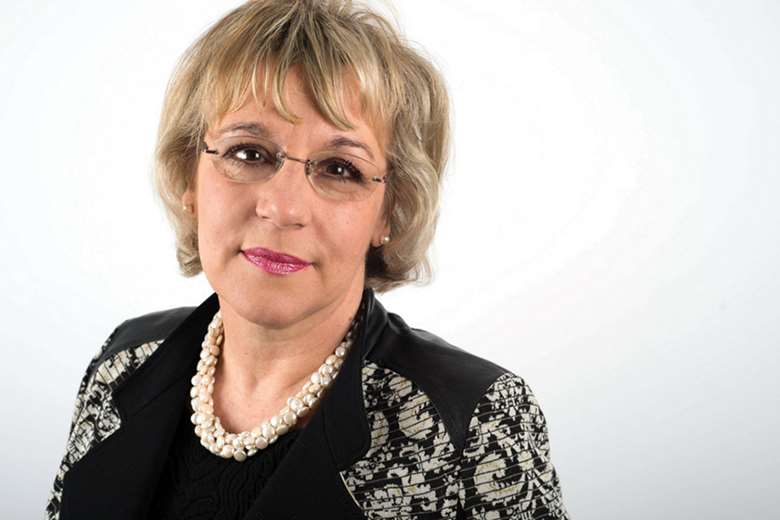Tsar for social mobility: Dame Martina Milburn, chair, Social Mobility Commission
Derren Hayes
Tuesday, January 29, 2019
Derren Hayes speaks to Dame Martina Milburn, chair, Social Mobility Commission.

Last July, the government appointed Martina Milburn, the long-standing chief executive of The Princes Trust Group, as the new chair of the Social Mobility Commission. After a lengthy recruitment process, Milburn replaced former Labour Health Secretary Alan Milburn after he and all the commission's members quit in December 2017 citing lack of support from government. Subsequently, an education select committee report said the commission needed stronger powers as it had lacked influence with ministers since its launch in 2012. Last December, Dame Martina unveiled the commission's 12 new commissioners and research findings showing the public think government, employers and educators are doing too little to help disadvantaged young people to succeed.
Are the life chances of children getting better, or worse?
There is worrying evidence that child poverty is getting worse. The latest data shows that 500,000 extra children are in relative child poverty compared with five years ago. This may have an impact on social mobility and life chances for these children when they reach their adult lives but it will take another 20 years before we have reliable evidence.
What is the government getting right on social mobility?
The attainment gap between disadvantaged and better-off children is narrowing very slightly in schools. The government is drawing up T-levels - skills qualifications which aim to mirror A-levels. These have the potential to help young people to get into good jobs through the vocational route - but there are a number of issues with the design and implementation that we are closely monitoring in the commission.
Also former Education Secretary Justine Greening set up Opportunity Areas in pockets of poor social mobility following the commission's first Social Mobility Index.
How will you use the £2m for "critical research"?
We are still discussing which pieces of research to commission but the additional money will also allow us to develop practical tools to drive action on social mobility in England. There are lots of interventions already happening and we would like to help organisations put these into practice. In particular, we would like to help employers access wider talent by improving practice around recruitment, progression and promotion.
Has Brexit resulted in a lack of focus on domestic issues in recent years?
I have not been aware of any lack of focus or push back in regard to the commission's work. All the meetings I have asked for with ministers have gone ahead, as have meetings with Downing Street, and I have managed to secure an extra £2m for critical research on social mobility issues.
Are you concerned by the way in which your predecessor left the role?
I have made clear that I will hold the government to account and push for action where I feel it is lacking. Alan Milburn told me shortly after I took up the post that it was important to have a good working relationship with Downing Street. I have set up regular meetings with policy advisers at Number 10 and will submit quarterly reports to the Prime Minister and Education Secretary on progress towards improving social mobility.
Do you agree with the education committee's assertion that the commission needs stronger powers due to a lack of clout among ministers?
I have only been in post a few months and the 12 new commissioners have only just been appointed. I do have new ways of holding the government to account through new quarterly reports and I am initiating regular meetings with ministers. The additional funds for research are a start, and I will be pushing for more resources to increase the impact in future years. The real test will be whether ministers implement our future recommendations.
What needs to be done to improve life chances for children?
There are barriers to social mobility throughout a child's life - gaps between those from high- and low-income backgrounds exist from birth and widen in schools years and beyond. For example, tackling issues such as the lack of provision of free childcare for jobseekers and supporting and improving vocational education.
What are the key messages to emerge from the social mobility barometer and how will you act to address them?
One of the key messages was a sense of increasing pessimism among young people with only one in seven of those aged 18 to 24 thinking they had the best opportunity to move up in life. Nearly half the public thought social mobility was getting worse and most people thought the baby boomers had the most opportunities to move up in life.
As our work evolves we expect to focus more on young people's routes into work, through new skills, apprenticeships and vocational qualifications to ensure that everyone has a chance to succeed and get a good job.
MARTINA MILBURN CV
- July 2018 - Chair, The Social Mobility Commission
- 2017 - Made a Dame in the New Year Honours
- 2018 - Chief executive, Princes Trust Group
- 2012 - Awarded a CBE in the New Year Honours
- 2004 - Chief executive, The Prince's Trust
- 2000 - Chief executive, BBC Children in Need
- 1993 - Chief executive, Association of Spinal Injury Research Rehabilitation and Reintegration
- 1980s - Freelance journalist for charities including CAFOD
- 1976 - Trainee reporter, Press Association




